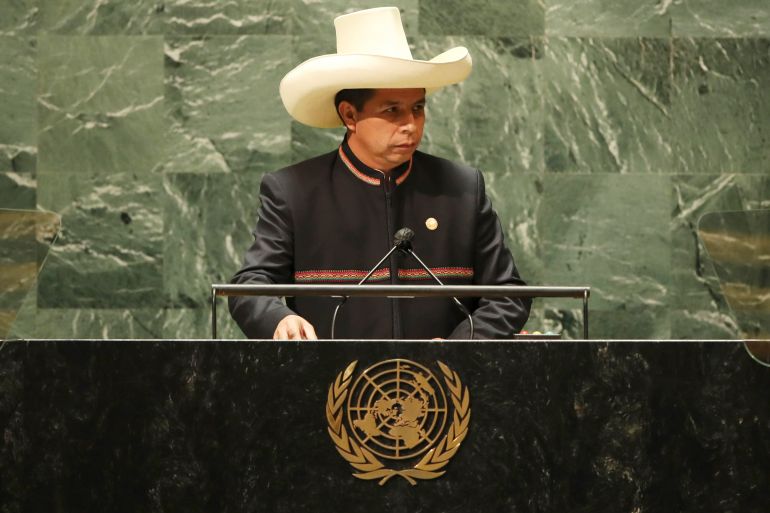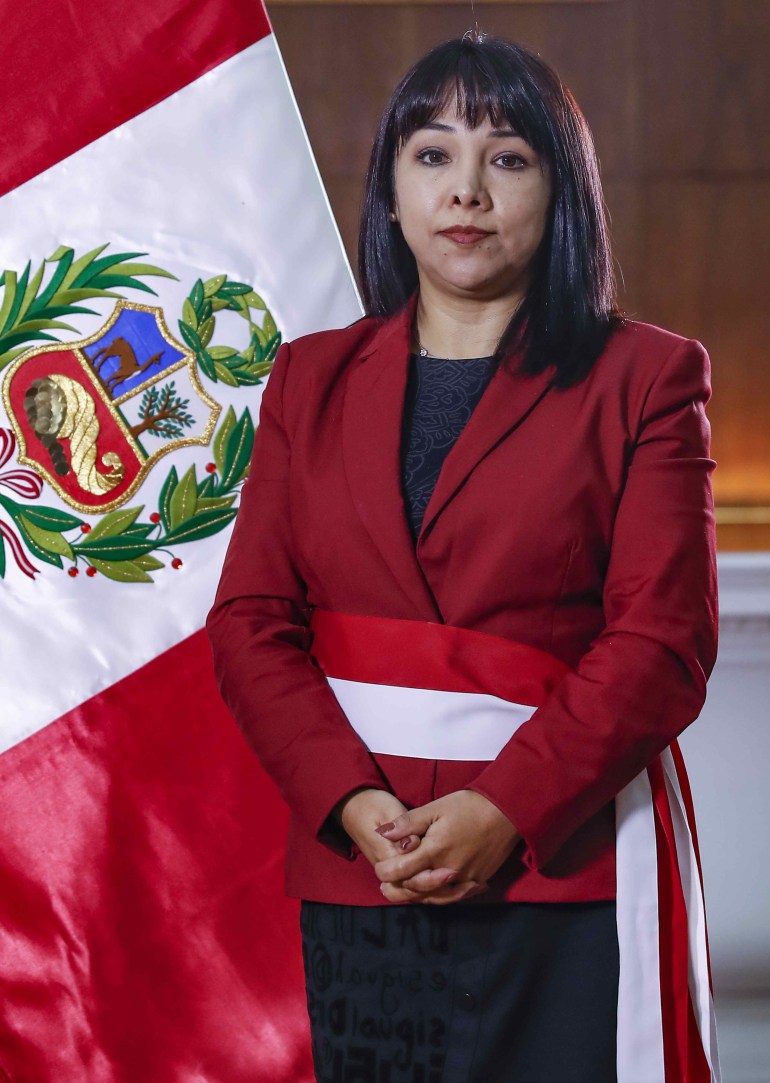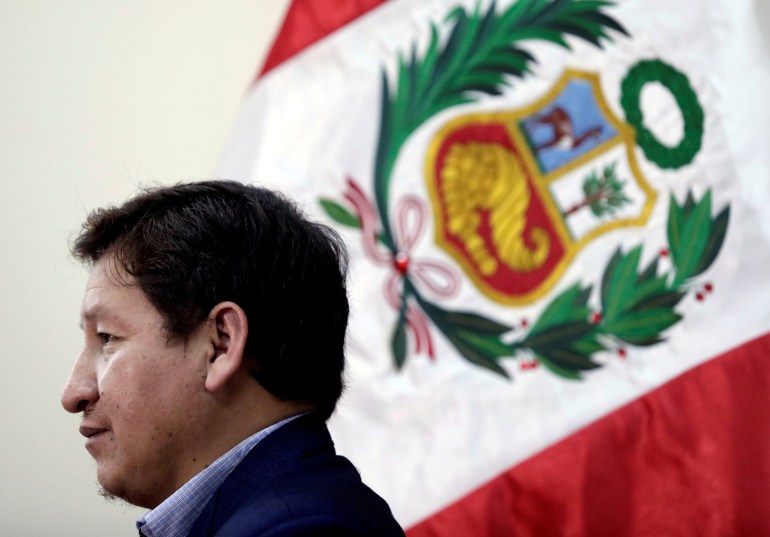Peru’s President Castillo swears in new prime minister
Left-wing former head of Congress Mirtha Vasquez following resignation of Guido Bellido after just two months in the job.

Peru’s President Pedro Castillo has sworn in Mirtha Vasquez, a left-wing former head of Congress, as his new prime minister, hours after her predecessor resigned after only two months in the job.
The move keeps Castillo, a member of a Marxist-Leninist party, on the left of the political spectrum, but it is likely to mean a more moderate cabinet. Castillo kept centre-left Economy Minister Pedro Francke in the role, and named a new minister for energy and mines, Eduardo Gonzalez Toro.
Keep reading
list of 3 itemsPeru: Dilemma over what to do with body of Shining Path leader
US judge approves extradition of ex-Peruvian President Toledo
Castillo announced the resignation of his previous prime minister, Guido Bellido, on Wednesday, citing “instability” in the country. Under Peruvian law, the prime minister’s resignation automatically triggers that of the entire cabinet.
Castillo had appointed Bellido after his presidential victory in July, and Congress approved the new administration in August.

Bellido was little-known before taking the role, but his brash style rattled the opposition-led Congress while investors worried about the implications of a leftist administration on business.
Vasquez, the new prime minister, was head of Congress between 2020 and 2021. She is a lawyer and defended Maxima Acuna, a peasant farmer, in a prominent case against Newmont Mining Corp’s Yanacocha gold mine that drew headlines around the world.
After his resignation was announced, Bellido posted a photo from the movie Gladiator on Twitter with the caption: “We return to the arena where we belong.”
Both Castillo and Bellido are from the socialist Free Peru Party, but Bellido had adopted more hard-left stances and had faced opposition for suggesting Peru’s natural gas sector should be nationalised.
Last month, his cabinet delivered a letter to Argentina’s Pluspetrol, the most significant natural gas player in Peru, asking to renegotiate the firm’s contract with the state to pay higher taxes.
In an interview with Reuters news agency after taking office, Bellido called for direct state involvement in key economic areas.
“Our feeling is that strategic sectors need to be in the hands of the government,” he said.
“In my opinion, natural gas is a strategic resource and needs to have government participation [as well] as new hydroelectric projects of large size.”
In August, Bellido also delivered a speech to Congress in the Indigenous Quechua language for the first time in the country’s history.
Controversies
But the outgoing prime minister’s appointment was controversial from the start.
Peruvian media claimed Bellido, 41, was investigated by prosecutors for an alleged “apology for terrorism” over statements made shortly after taking up his seat in parliament in June.

In statements to the Inka Vision online news outlet, he appeared to defend people who supported the Shining Path Maoist group that fought the state from 1980 to 2000 and is designated a terrorist organisation by Lima.
In a Twitter post, President of Congress Maria del Carmen Alva, a member of right-wing Accion Popular, welcomed Bellido’s departure, saying that it came after days of “unnecessary uncertainty”.
In announcing Bellido’s resignation, Castillo said his government supports private investments in the country.
“The balance of powers is the bridge between the rule of law and democracy,” Castillo said.
“Votes of confidence, [Congressional] hearings and censure should not be used to create political instability,” he added.